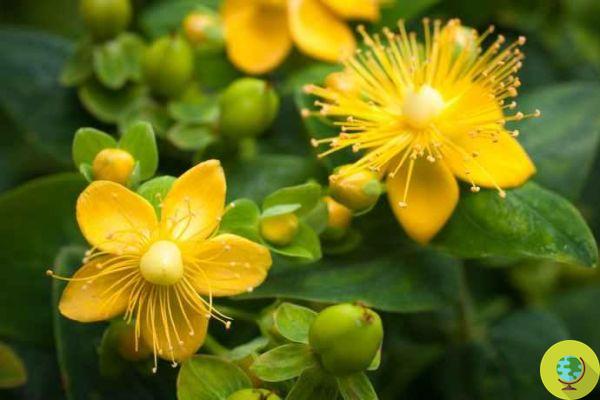
According to a new discovery, a Sardinian plant could be used to block the spread of infected cells and reduce the number of drugs an HIV-positive patient must take in therapy.
Don't store avocado like this: it's dangerousA possible anti-viral drug from a Sardinian endemic plant that could prove to be revolutionary in the fight against AIDS. The discovery of the ability of “Hypericum scruglii” - already used in popular medicine - to block the enzymes that allow the replication of the HIV-1 virus is due to the study of some researchers from Cagliari. This plant could thus be used to block the spread of infected cells and reduce the number of drugs that an HIV-positive patient must take in therapy.
The survey was conducted by a multidisciplinary team of the University of Cagliari who, in an article published on PlosOne, focused on the Hypericum of Scrugli, a typical perennial herbaceous plant that is an endemic and exclusive species of the carbonate highlands of Sardinia central-eastern.
In particular, the researchers identified for the first time in Hypericum scruglii a metabolite belonging to the class of prenylated phloroglucinols, which would be able to inhibit two key HIV-1 enzymes at very low concentrations, thus making replication of the virus impossible in cellular assays. In other words, the detected molecule blocks the enzymes that allow the virus to replicate.
This virtuous plant, whose name is a tribute to the botanist Antonio Scrugli is not found everywhere in Sardinia, but grows in some central-eastern areas such as the Laconi area and the Ogliastra heels.
A systematic review
Scientists from Cagliari have isolated six compounds in the laboratory and discovered that these active ingredients are able to block the enzymes that allow the replication of the HIV-1 virus.
In particular, the most active compound would be a “multitarget” molecule that allows to act on several fronts simultaneously, thus aiming at a possible reduction of the drugs used in therapy.
"The molecule is able to inhibit in vitro the reverse transcriptase and integrase of human type 1 immunodeficiency and has also been shown to inhibit the replication of the virus in cell cultures - explains the virologist and microbiology researcher, Francesca Esposito. This compound had never been isolated before this study ”.
Already a plant, geranium, in the past, had shown itself to be able to prevent infection, inactivating the virus and blocking its spread in the blood cells and the immune system, confirming the fact that it is from natural products that one could restart in the discovery of new less invasive solutions for those who have contracted the human immunodeficiency virus.
Read also:
- World AIDS Day: 10 things you (maybe) don't know #WorldAIDSDay
- World AIDS Day: How do you know if you have the HIV virus
- World AIDS Day 2016: don't let your guard down
Germana Carillo


























